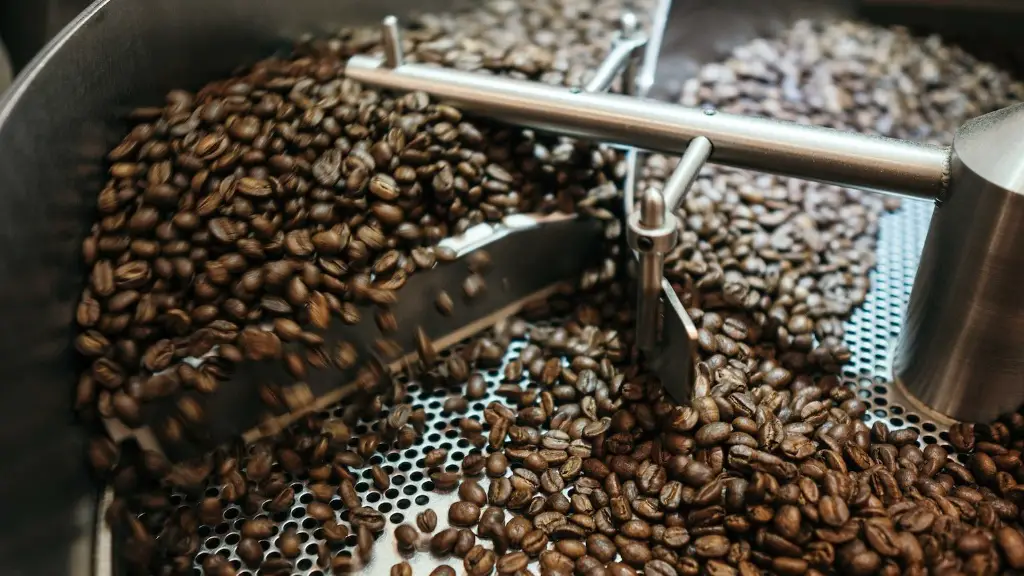Background Information
Answers to the question of whether coffees consumption is compatible with probiotic consumption are subject of discussion among experts. Probiotics are live microorganisms that are known to help improve digestion and boost immune system functioning. Different strains of bacteria and yeasts are used to form this dietary supplement. Several studies have shown that the right strain of probiotic can offer various health benefits. For instance, it helps prevent and reduce the severity of digestive conditions, such as inflammatory bowel disease. Similarly, some probiotic strains have been associated with improved immunity, enhanced brain health, and even decreased risk for certain types of cancer.
On the other hand, coffee consumption has been proven to be beneficial for many people, although with certain caveats. Studies have associated coffee consumption with lower risk of many diseases, such as coronary heart disease, type 2 diabetes, Parkinson’s Disease and prostate cancer. Besides, this popular beverage contains beneficial antioxidants that can help to protect against oxidative damage and inflammation.
Data and Perspectives from Experts
Despite its beneficial effects, experts disagree on whether or not coffee consumption should be combined with probiotic consumption. Some say that it is not recommended to consume coffee shortly after or before taking a probiotic supplement, as it can interfere with the successful colonization of beneficial bacteria. This means that the bacteria will not get to its destination and its effects may be diminished.
On the other hand, other experts point out that coffee can actually be beneficial. For example, certain strains of gut bacteria have been observed to have higher rates of growth if exposed to caffeinated coffee. This suggests that the substances in coffee can have either positive or negative effects depending on the type of probiotic consumed.
Insights and Analysis
Taking into account the arguments from both sides, it is reasonable to conclude that, overall, it is best to avoid consuming coffee shortly after or before taking a probiotic supplement. While some studies have found that certain strains may benefit from the presence of coffee, it is impossible to know which strain will be affected and it is likely that most will be affected negatively.
However, the effects of caffeine on the gut are not fully understood yet and further research is needed to determine the exact effects on probiotic bacteria. Until then, it is best to drink coffee in moderation and wait 1-2 hours after taking a probiotic supplement before consuming coffee.
Nutrition and Digestion
Coffee and probiotics both play an important role in digestion and nutrition. Probiotics help maintain healthy levels of good bacteria in the gut, which improves the ability of the intestines to absorb and utilize nutrients, as well as prevent harmful bacteria from growing. On the other hand, coffee can help increase the production of gastric juices, which can aid digestion and the absorption of nutrients from food.
Moreover, probiotics have the ability to reduce inflammation and increase nutrient absorption, while coffee can help reduce bloating, improve liver health, and enhance the absorption of some vitamins and minerals. Each of them can also contribute to weight loss, as they can reduce cravings, help block the absorption of some fat and calories, and increase thermogenesis (fat burning).
Immune System Support
Both probiotics and coffee are beneficial for the immune system. Probiotics help to create a healthy gut environment, in which beneficial bacteria prosper, while coffee provides antioxidants, which protect cells from damage. Probiotics can also stimulate the production of immunoglobulins, which are proteins responsible for fighting infection, while coffee may help reduce inflammation and boost the number of white blood cells.
Moreover, probiotics help to balance the gut microbiome, which helps to protect against inflammation, while coffee can reduce the risk of certain immune-related diseases, such as type 1 diabetes and multiple sclerosis. Taken together, the combined effect of coffee and probiotics may be beneficial for the immune system.
Cognitive Function
The combined effect of coffee and probiotics can also be beneficial for cognitive function. Caffeine in coffee helps improve concentration and alertness, while probiotics have been linked with improved brain health and cognitive function. In particular, some strains of probiotics can help increase neurogenesis (growth of neural cells) and improve neuroplasticity, which is the ability of the brain to change in response to experience.
Moreover, probiotics can help to reduce inflammation, which may be beneficial for people suffering from neurodegenerative disorders, such as Alzheimer’s disease. Similarly, coffee can help to protect the brain by providing antioxidants, which reduce oxidative damage.
Safety and Side Effects
Although both coffee and probiotics are generally considered safe, it is important to note that there are some possible side effects associated with each. For instance, probiotics can cause digestive side effects such as bloating, gas, and constipation, while caffeine can cause restlessness, insomnia, and increased heart rate. Additionally, high doses of caffeine can also lead to anxiety and increased blood pressure.
Therefore, it is important to be mindful of the potential side effects and consult a healthcare professional before taking any dietary supplement or drinking excessive amounts of coffee. Although the benefits can outweigh the risks in the long run, it is best to exercise caution when it comes to consuming either substance.
Messaging and Delivery
Coffee and probiotics are both beneficial in their own ways, but it is important to understand how to properly use them. Knowing when to drink coffee and take probiotics, how much to take, and what types of probiotics and coffee to take can make all the difference. Furthermore, it is important to recognize the potential side effects of both and be mindful of the dose consumed.
Finally, it is always best to consult with a healthcare professional before taking a probiotic supplement or increasing coffee consumption. Each person may react differently to probiotics and caffeine, so it is best to be aware of any potential risks before consuming either.


